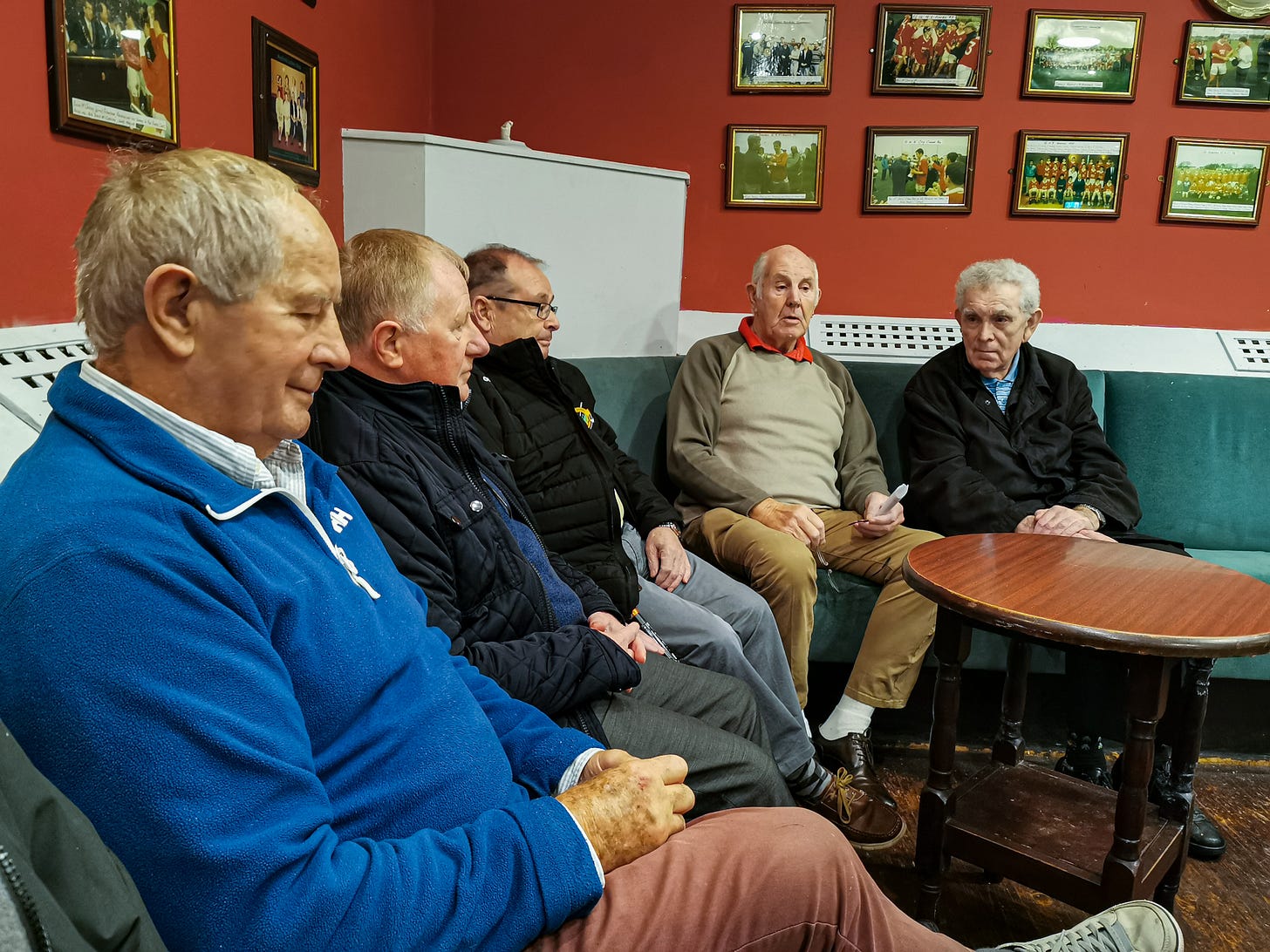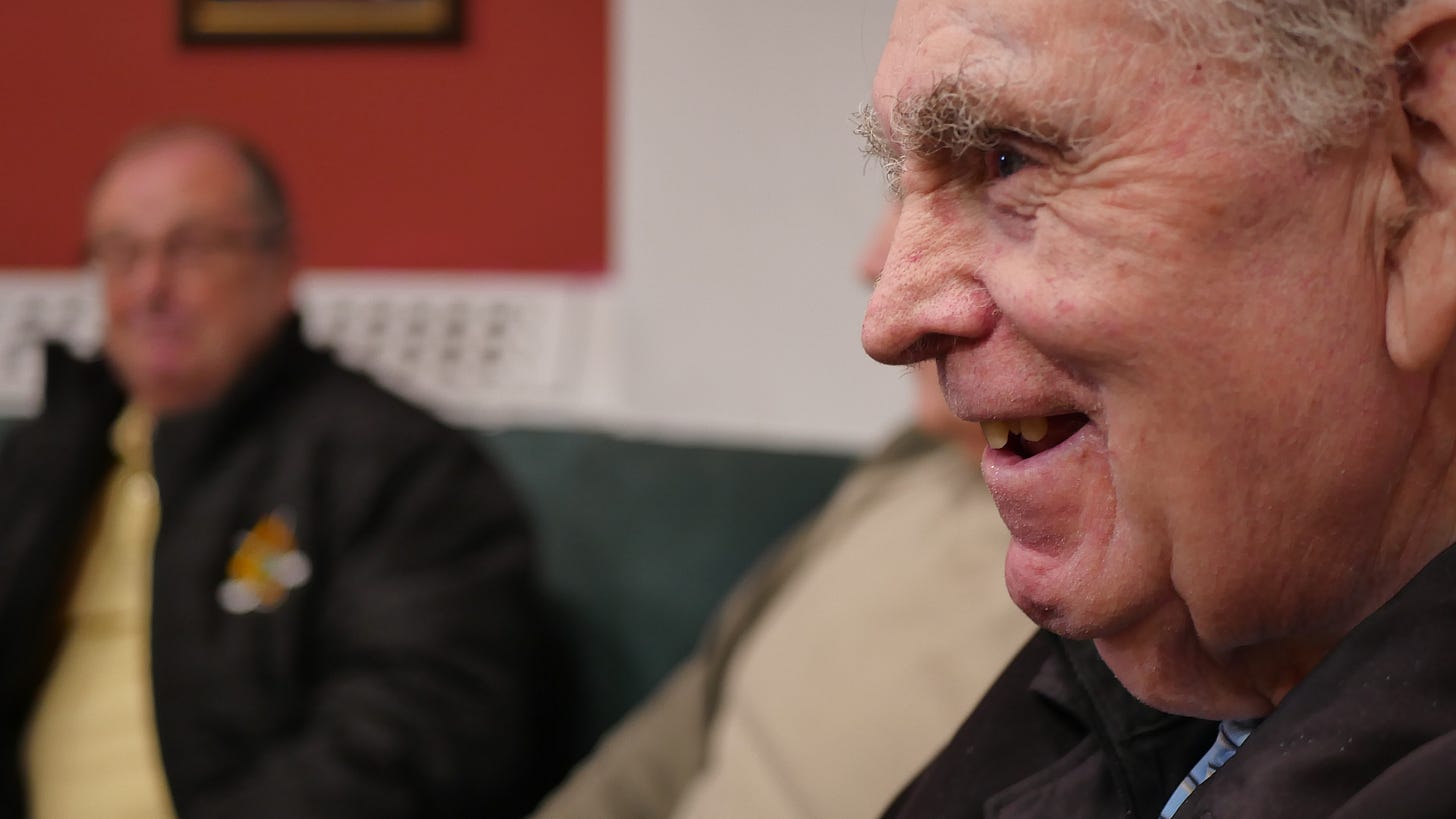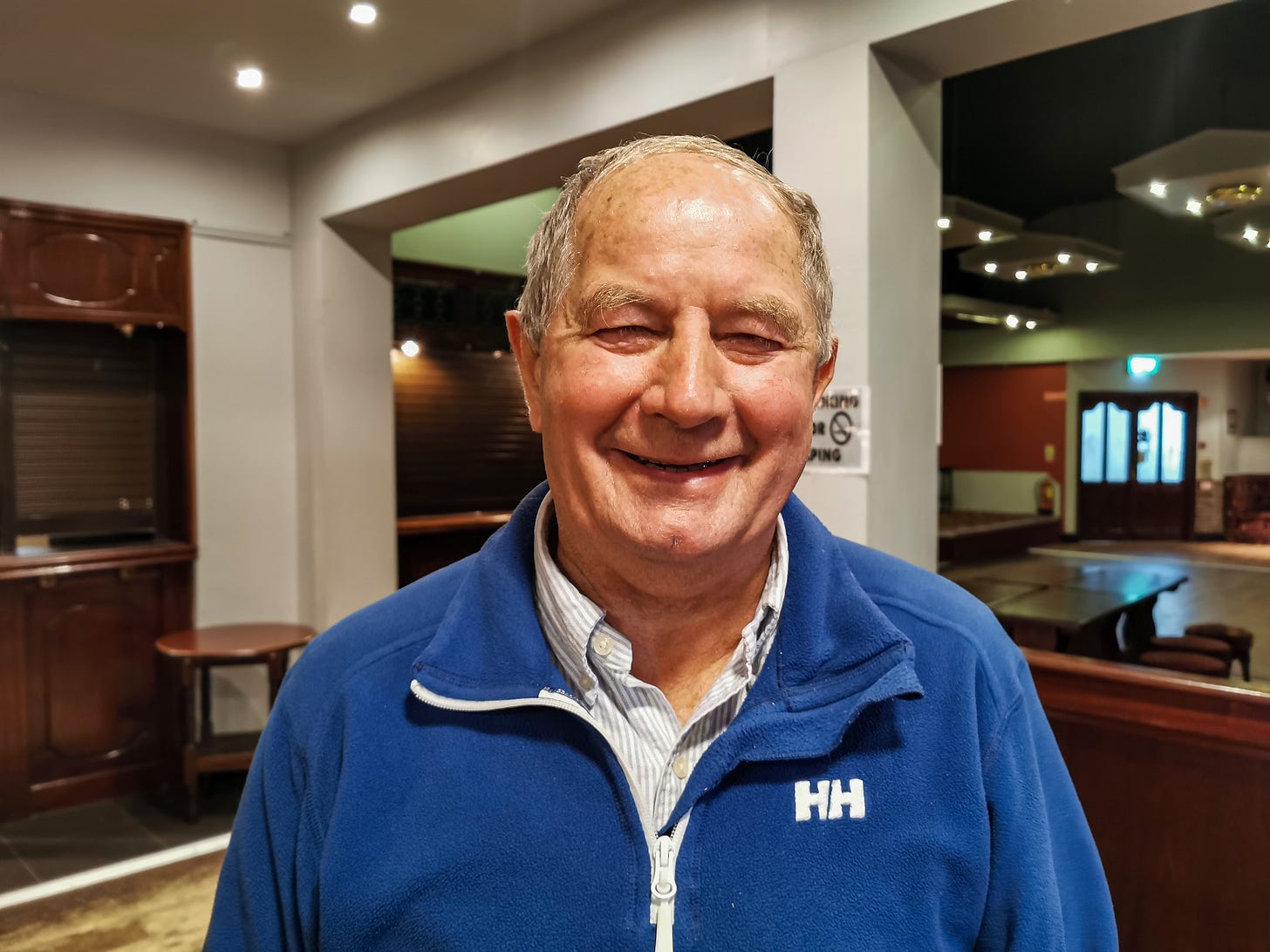The Men’s Shed with no Shed
In Mayfield, the close-knit support of a Men’s Shed brings a sense of community and purpose to members, but their lack of premises is hindering their activities

Up until Covid-19 struck, Mayfield Men’s Shed met every single Tuesday and Wednesday since their formation in July 2016.
Having kept each other’s spirits up with regular phone calls for 18 months of restrictions and uncertainty, they’re now delighted to be able to meet again.
As well as woodwork, arts and crafts, making things for Christmas markets and doing practical jobs for people in the community, they’ve even managed to become TV stars, delighting audiences when their choir went on Ireland’s Got Talent in 2019, and sharing their wisdom with rugby star Donncha O’Callaghan on his TV documentary Game Over, where he explored the impacts of retirement on men’s mental health, in the same year.
But they’ve done all this despite the group being without, well, a shed.
One of a network of 400 groups to have sprung up in the Irish Men’s Shed movement since its foundation in Tipperary in 2011, Mayfield Men’s Shed, like the others, was founded to bring a positive sense of community to men who are often retirees and may be battling isolation, boredom or a sense of purposelessness.
The idea that the men of Mayfield might benefit from such a group didn’t come from men at all, but from women who met in Mayfield Community Development Project. To gauge the appetite in the community for a Men’s Shed, the women placed ads in the local newspapers and a small number of men who recognized the need for a group got in touch.
Meetings were held, and eventually a Men’s Shed was formed. In the early days, there were just seven members. Today, Mayfield Men’s Shed has 35 members and counting.
Organisations in the locality have kindly hosted the group for periods of time here and there over the years, but they are yet to secure a permanent set-up for their crafts, their choir and that all-important cup of tea.
Still without a place of their own, they are on the lookout for a full-time home, and have been for some time.
Before Covid-19, securing a permanent place to meet seemed to be on the cards. In the spring of 2019, a nearby GAA club had agreed to facilitate them by offering the group a permanent spot on its site.
There were hiccups, but nothing that couldn’t be overcome. For the project, Mayfield Men's Shed secured funding from Cork City Council and the HSE. Believing a permanent location was imminent, they went about getting an actual shed: measuring 40 foot by 20 foot.
“We were delighted with it,” shed member John O’Mahony says.
But a change in committee at the host GAA club led to a sudden change in tone: the Men’s Shed members were told that the previous committee, with whom they had good relations, made decisions that weren’t in line with the new committee’s policies.
Mayfield Men’s Shed had secured planning permission to build their shed onsite, but this fell through by August 2021, leaving them unable to take up €6,000 in government funding that they had secured, and yet again without the prospect of a regular meeting place.
Vague prospects of another home at a different GAA club seem on the cards at present, but nothing is concrete.
What would it mean for the men to find a permanent residence?
“Well, I’ll tell you now,” Mr. O'Mahony says. “To have a place to meet is so important. When we have 35 men gathering together in a place, the happiness that it gives these 35 men is colossal.”
A permanent home for the group would be a huge improvement, especially when it comes to housing equipment for activities such as woodwork, Charlie Hickey, a spokesman for the group, says.
“Having no permanent place affects the members’ activities detrimentally,” he says.
“We’re not just a community organisation; we are helping people who are basically in the autumn of their lives, who may be dependent on other people. Bringing that dependency away from their families and away from their carers, to a common community of retired men is very beneficial for health and mental health.”






